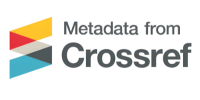Gig Economy and Its Implications for Labor Market Dynamics
DOI:
https://doi.org/10.25215/31075037.003Keywords:
Gig economy, labor market dynamics, flexible employment, gig workers, income instabilityAbstract
The gig economy through short-term flexible employment contracts functions as today's market trend for labor management in present-day labor markets. The study investigates the impact of the gig economy on labor performance by evaluating employment effects and analyzing wages and making future projections regarding workplace models. Digital platforms including Uber and TaskRabbit and Upwork enabled workers to gain work arrangement control by letting them decide their schedule along with choosing work locations. Workers who participate in the gig economy experience dual advantages yet strong drawbacks occur due to their variable compensation and absence of work benefits including health insurance and paid time off and retirement benefits. Despite their initial attractive nature the several characteristics of gig work lead to resulting volatile future labor systems. The research adopts an elementary framework to study labor market evolution driven by the gig economy and its impact on splits between payment types and protection of workers. A combination of qualitative and quantitative research methods enables the research to establish a detailed understanding of the gig economy's operation. Research workers conducted surveys of independent contractors to collect information about their job rewards along with their income fluctuations and job satisfaction. The interview method produced supplementary insights about general worker impacts throughout different fields and corporate policy needs. This paper explained the outcomes of research and current developments in the contemporary gig economy through data obtained from academic literature as well as additional sources. Within the gig economy work model there are split occupational areas where experienced professionals earn flexible lucrative employment but inexperienced workers receive unstable minimum-wage positions. Workers at these establishments receive pay that changes dramatically because their earnings depend heavily on how long they work especially in ridehailing and delivery service roles. Flexible working schedules in the gig economy economy provide no stability to workers since this system blocks their access to critical benefits along with stable employment thereby threatening their future economic success. The power imbalance between employees and their employers develops because digital platforms took ownership of how much workers earn and what workplace rules must be followed. Policymakers need to develop innovative solutions which help solve the problems faced by personnel working in flexible employment. Workers who join flexible employment receive benefits from unconventional scheduling yet need governmental oversight to sustain reasonable pay and protect job stability and benefits. The government needs to establish protective measures for social benefits which support independent workers throughout this work arrangement but do not interfere with their continued labor freedom. Scientists need to identify long-term financial patterns affecting employee stability alongside researching how the emerging technology will transform the forthcoming market configurations.












